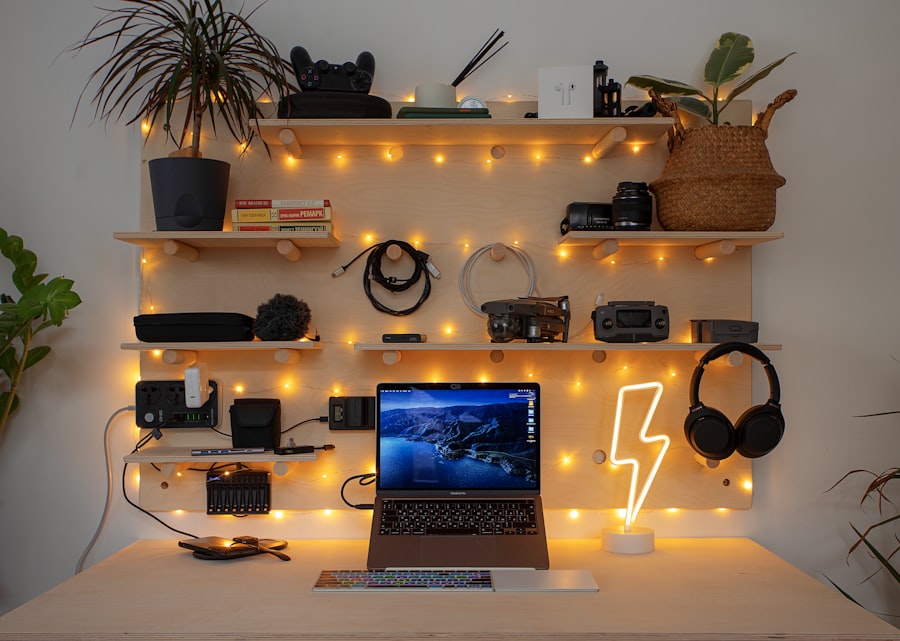A cover letter is an essential part of a job application that introduces the applicant to a potential employer and expresses interest in a specific position. It serves as a platform to highlight personality, enthusiasm, and relevant qualifications that make the candidate suitable for the role. The cover letter complements the resume by providing additional context and insights into the applicant’s professional background and suitability for the job.
It allows candidates to present a compelling argument for their candidacy and explain why they should be considered for the position. Furthermore, a cover letter enables applicants to demonstrate their understanding of the company and the job requirements. It provides an opportunity to explain how their skills and experiences align with the organization’s needs and how they can contribute to its success.
The primary objective of a cover letter is to create a strong initial impression, capture the employer’s attention, and persuade them to consider the applicant for an interview.
Key Takeaways
- A cover letter should clearly convey your interest in the position and company, and how your skills and experiences align with their needs.
- Research the company and customize your cover letter to show that you understand their values, mission, and how you can contribute to their success.
- Highlight specific skills and experiences that are directly relevant to the job you are applying for, and provide examples of how you have used them effectively.
- Use your cover letter to showcase your personality, enthusiasm, and passion for the position, while maintaining a professional tone.
- Use strong and professional language to convey confidence, competence, and professionalism, and avoid using cliches or overly casual language.
- Organize your cover letter effectively, with a clear and concise structure, and use formatting to make it easy to read and visually appealing.
- Proofread and edit your cover letter carefully to ensure it is error-free, clear, and effectively communicates your qualifications and interest in the position.
Researching the Company and Tailoring Your Letter
Understanding the Company’s Mission and Culture
Start by visiting the company’s website, reading about their mission, values, and culture, and familiarizing yourself with their products or services. This will give you a solid foundation to build upon and help you understand the company’s overall vision.
Gathering Insight into the Company’s Current Projects and Goals
Look for recent news articles, press releases, or any other relevant information that can provide insight into the company’s current projects, challenges, and goals. This information will help you tailor your cover letter by highlighting how your skills and experiences align with their needs.
Customizing Your Cover Letter
Use specific examples from your past work or academic experiences to demonstrate how you can contribute to the company’s success. Address the hiring manager by name if possible, and mention any mutual connections or referrals you may have. By customizing your cover letter to the company and the job requirements, you will show that you have taken the time to understand their needs and are genuinely interested in the opportunity.
Highlighting Your Relevant Skills and Experiences

When writing your cover letter, it’s important to highlight your most relevant skills and experiences that make you a strong candidate for the position. Start by carefully reviewing the job description and identifying the key qualifications and requirements for the role. Then, choose a few of your most relevant skills and experiences that align with these requirements and emphasize them in your cover letter.
Use specific examples to demonstrate how you have successfully applied these skills in previous roles or projects. In addition to highlighting your technical skills, it’s also important to showcase any soft skills or personal qualities that are relevant to the job. For example, if the job requires strong communication or leadership skills, provide examples of how you have demonstrated these qualities in your previous work or academic experiences.
By showcasing a combination of technical and soft skills, you will present yourself as a well-rounded candidate who can excel in the role.
Showcasing Your Personality and Passion for the Position
A cover letter provides an opportunity for you to showcase your personality and passion for the position, which can set you apart from other candidates. Use your cover letter to convey your enthusiasm for the company and the specific role you are applying for. Share what excites you about the opportunity and why you are passionate about working for the company.
You can also include a brief anecdote or personal story that illustrates your genuine interest in the industry or the company’s mission. In addition to expressing your passion, use your cover letter to showcase your personality and unique qualities that make you a good fit for the company’s culture. For example, if the company values creativity and innovation, share examples of how you have demonstrated these qualities in your previous work or projects.
By showcasing your personality and passion for the position, you will make a memorable impression on the employer and demonstrate that you are genuinely excited about the opportunity.
Using Strong and Professional Language
When writing a cover letter, it’s important to use strong and professional language that conveys confidence and professionalism. Start by addressing the hiring manager by name if possible, and use a formal salutation such as “Dear Mr./Ms. [Last Name].” Use clear and concise language to convey your points, and avoid using overly casual or informal language.
Be mindful of your tone and ensure that it is respectful and professional throughout the letter. In addition to using strong language, it’s important to be specific and concrete in your examples and statements. Instead of making general claims about your skills or experiences, provide specific examples that demonstrate your qualifications for the role.
Use action verbs to describe your accomplishments and responsibilities, and quantify your achievements whenever possible. By using strong and professional language, you will convey confidence and competence to the employer.
Formatting and Organizing Your Cover Letter Effectively

Professional Format and Structure
A well-structured cover letter is essential for making a strong impression on the employer. To achieve this, use a professional format with clear headings and sections, including an introduction, body paragraphs, and a conclusion. Choose a standard font such as Arial or Times New Roman to ensure your letter is easy to read.
Effective Use of Bullet Points and Paragraphs
To highlight your key points and achievements, use bullet points or numbered lists. Keep your paragraphs concise and focused, and use specific examples to demonstrate how you have successfully applied your skills in previous roles or projects.
Organizing Your Content
When organizing your content, start by introducing yourself and expressing your interest in the position in the opening paragraph. In the body paragraphs, highlight your relevant skills and experiences that make you a strong candidate for the role. In the closing paragraph, reiterate your interest in the position, express your enthusiasm for the opportunity, and thank the employer for considering your application. Don’t forget to provide your contact information for further communication.
Proofreading and Editing for Errors and Clarity
Before submitting your cover letter, it’s crucial to proofread and edit it carefully to ensure that it is free of errors and conveys your points clearly. Start by checking for any spelling or grammatical errors, as these can detract from your professionalism and attention to detail. Use spell check tools and consider asking a trusted friend or colleague to review your letter for any mistakes or unclear language.
In addition to checking for errors, review your cover letter for clarity and coherence. Ensure that your points are well-organized and easy to follow, and that each paragraph flows logically into the next. Consider reading your letter out loud to identify any awkward phrasing or unclear statements.
By proofreading and editing your cover letter carefully, you will present yourself as a detail-oriented professional who takes pride in their work. In conclusion, writing an effective cover letter requires careful research, thoughtful customization, strong language, effective formatting, and meticulous proofreading. By following these guidelines, you can create a compelling cover letter that showcases your qualifications, personality, passion, and professionalism, ultimately increasing your chances of securing an interview for the job of your dreams.
If you’re looking to enhance your skills and make a great impression at career fairs and networking events, you may want to check out this article on Tips for Navigating Career Fairs and Networking Events. It offers valuable advice on how to make the most of these opportunities and stand out to potential employers. Mastering the art of networking and continuous learning are key components of a successful job search, as discussed in the article The Role of Lifelong Learning in Skill Enhancement. These strategies, along with expert tips and advice, are essential for job search success, as outlined in the article Keys to Job Search Success: Expert Tips and Advice.
FAQs
What is a cover letter?
A cover letter is a document sent along with a resume to provide additional information on your skills and experience. It is typically used to introduce yourself to a potential employer and explain why you are the best candidate for the job.
Why is a cover letter important?
A cover letter allows you to personalize your application and highlight specific achievements and qualifications that are relevant to the job you are applying for. It also gives you the opportunity to demonstrate your communication skills and show your enthusiasm for the position.
What should be included in a cover letter?
A cover letter should include your contact information, the employer’s contact information, a salutation, an introduction that explains why you are writing, a body that highlights your relevant skills and experiences, and a closing paragraph that expresses your interest in the position and thanks the employer for their consideration.
How long should a cover letter be?
A cover letter should typically be no longer than one page. It should be concise and to the point, focusing on the most relevant information that will make you stand out as a candidate.
How can I make my cover letter stand out?
To make your cover letter stand out, tailor it to the specific job and company you are applying to, use specific examples to demonstrate your skills and experiences, and show your enthusiasm for the position. Additionally, proofread your cover letter carefully to ensure it is free of errors.



